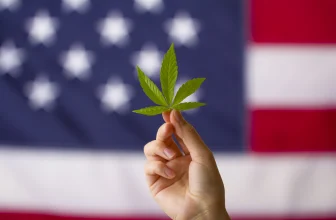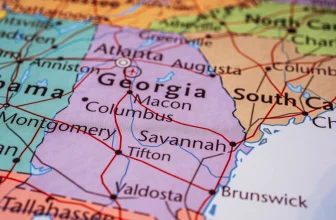
The third week in November was a busy one for announcements of legalization support. From federal level bipartisan efforts to more limited movements within individual states, politicians around the country signaled new intent to push for marijuana legalization in the new year. However, some states are also considering limitations on current recreational or medical use.
1. Congressional Republicans Crafting Bipartisan Legalization Bill
While many previous attempts at federal legalization were authored by Democrats, the latest bill introduced into Congress has Republican authors instead. Rep. Nancy Mace from South Carolina is advancing the States Reform Act through various stakeholders to build support. Unlike many other bills crafted by only one party, this bill is receiving a lot of bipartisan support. The bill calls for fully descheduling marijuana and treating it similarly to alcohol while still honoring Republican values like states’ rights to set their own limitations.
2. Colorado Implements Stricter Purchasing Limits in 2022
Colorado was one of the first states to open recreational marijuana to all adults, but now the state is enacting new limitations. The new stricter purchasing limits primarily target young adults between 18 and 20, but even adults over 21 will be limited to only buying two ounces of flower per day. Eight grams of concentrates will be legal to purchase per day if you’re over 21. Medical patients under 21 will be limited to two grams of concentrates per day and the same amount of flower. This is an attempt to limit the negative side effects of ingesting extremely high daily doses, such as cannabis hyperemesis syndrome.
3. Medical Marijuana Alone Has Brought Arkansas Nearly $45 Million in Sales Tax So Far
Arkansas decided in 2018 to only legalize medical marijuana, and sales began in May of 2019. Since then, the state has sold tens of thousands of pounds of marijuana, resulting in just under $45 million in sales tax revenue. With many legislators focusing solely on the income potential of legalizing marijuana, this kind of success just from medical approval is encouraging to advocates in the state. That’s even with relatively strict daily purchasing limits compared to other states and only 80,000 registered cardholders.
4. NYC Not Licensing Dispensaries Until 2023, Despite State Law
Millions celebrated when New York announced the legalization of marijuana in 2021, especially when the state law was written to allow for sales to begin in mid-2022. Yet, the residents of New York City, in particular, will have to wait a little longer than the rest of the state. The city’s Cannabis Control Board is taking its time in writing a specific set of laws for how licensing and dispensaries will be handled. While the current timeline for spring 2023 approval should allow for the creation of these statutes, the Cannabis Control Board cautions that dispensaries still won’t be open and ready to operate for another few months after that.
5. Indiana Democratic Party Announces Intent to Push for Marijuana Legalization
In Indiana, the examples of surrounding states where marijuana is legal are starting to win over more state legislators. The Indiana Democratic Party announced an initiative to craft a new bill for legalization that will be introduced during the 2022 GA session. With studies showing support for legalization is as high as 80% among Hoosier state residents, it’s no surprise that many politicians in the state up for re-election are making it a campaign promise. However, bipartisan support will be needed for the bill to have any chance of passing the state legislature.
6. Decriminalization Under Consideration in Wisconsin
Wisconsin isn’t considering full legalization of recreational weed just yet, but residents may soon face far fewer penalties for possessing it. The state representatives supporting the bill claim that it can help save the state millions in dollars — the cost of prosecuting and jailing people for non-violent drug offenses. Possession of up to one ounce would become a misdemeanor rather than a felony, with amounts above that weight remaining a felony. For possession of less than half an ounce, the bill calls for only a ticket rather than an arrest. The bill would help move Wisconsin towards joining more than half of all states that allow for at least medical marijuana possession.






